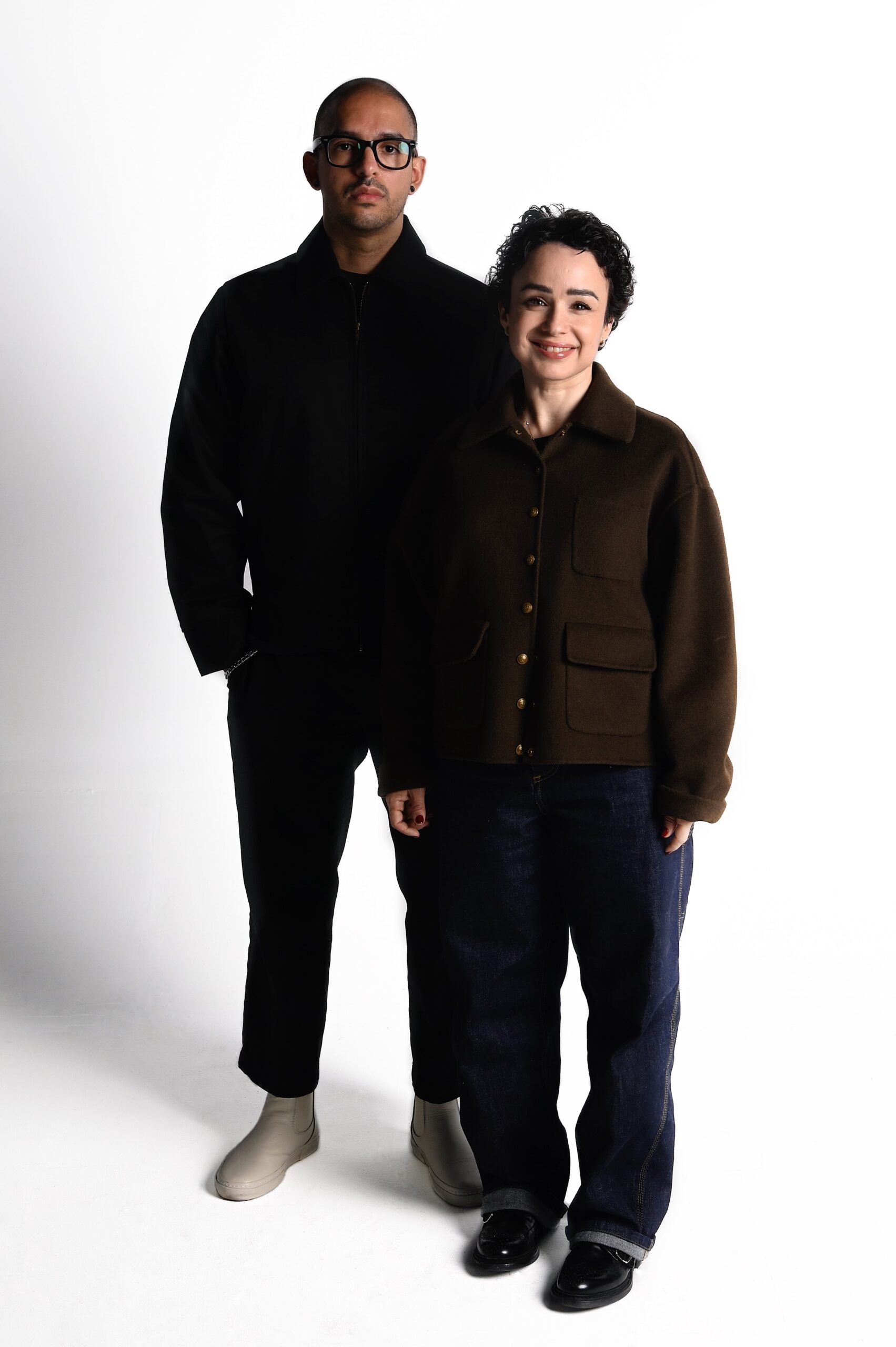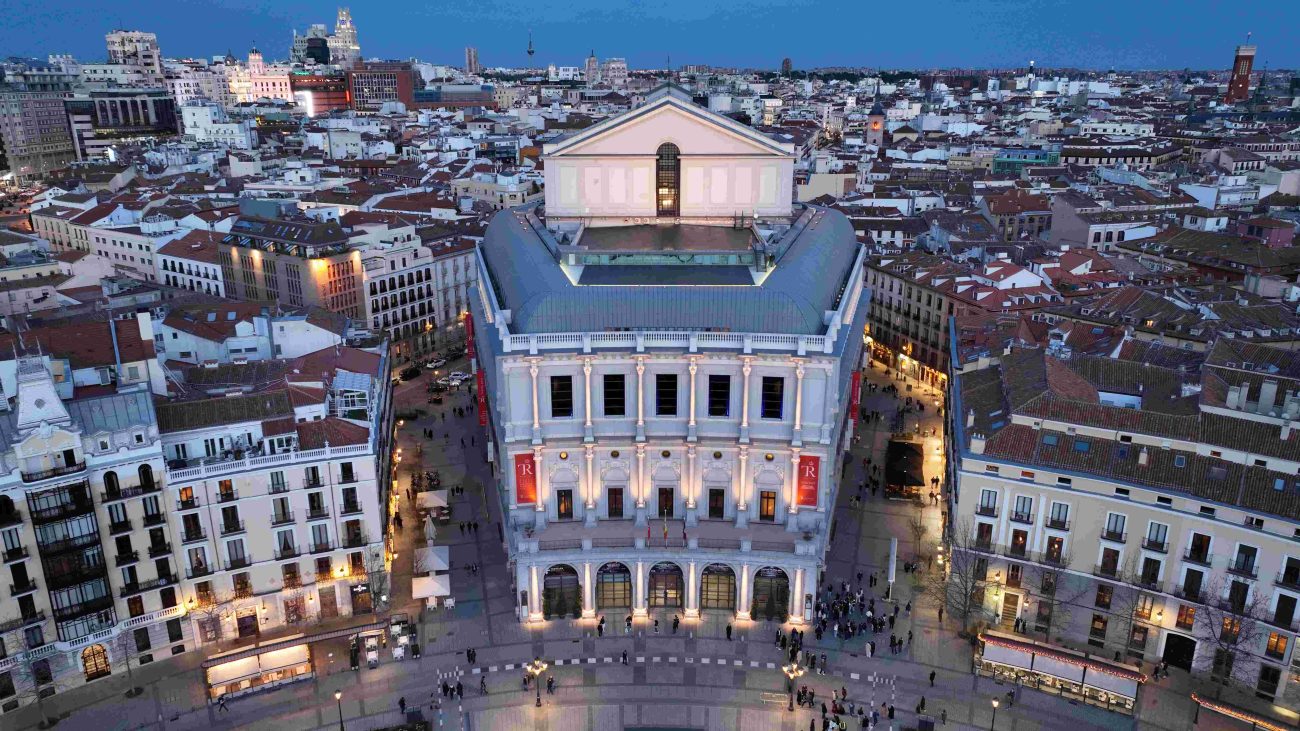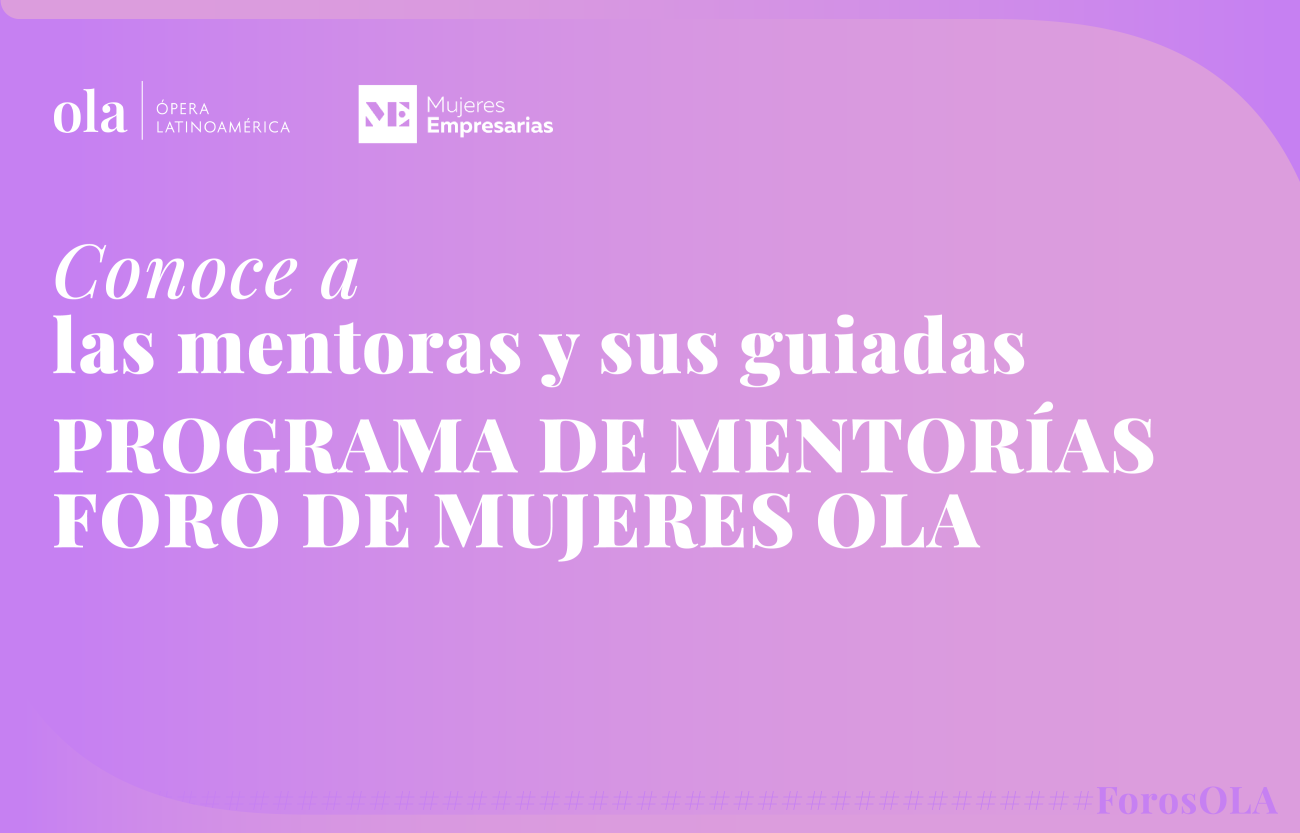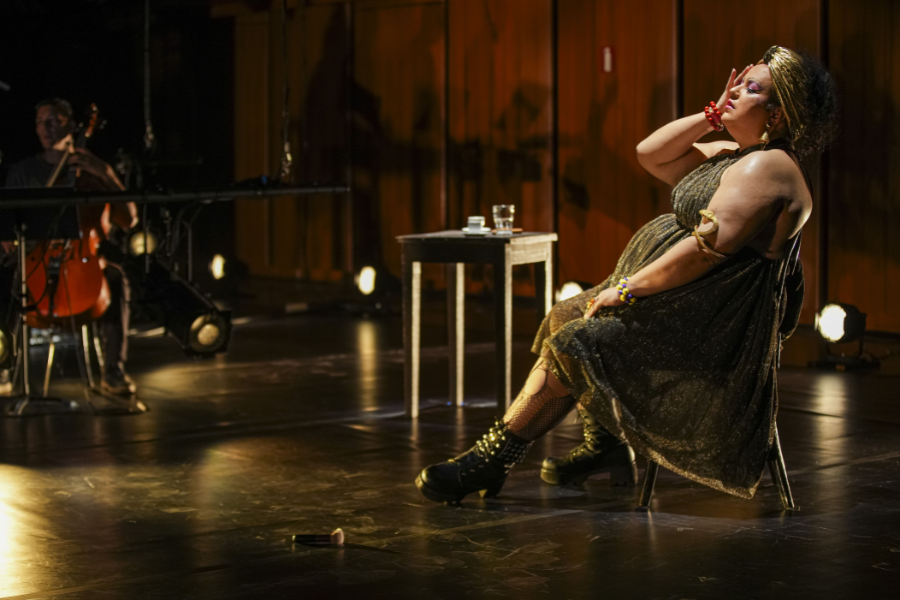La compañía Teatro Xtremo (Madrid, España) se incorpora a Ópera Latinoamérica (OLA)

Con su actual sede en Madrid, Teatro Xtremo tuvo su origen en 2002 y desde entonces ha recorrido un camino en constante evolución, consolidándose como una compañía que combina teatro contemporáneo, música en vivo, ópera de cámara, tecnología escénica y pensamiento crítico. Además de cultivar una propuesta rupturista que integra desde la literatura y el cine hasta lo autobiográfico y político, Teatro Xtremo promueve proyectos pedagógicos con institutos y universidades que van a la par de su impulso creativo. En esta entrevista relatan sus orígenes, entregan pistas sobre la elaboración de su propuesta artística de vanguardia y multidisciplinaria y adelantan algunos próximos espectáculos.
El dolor, la contemporaneidad opresiva, las adicciones, la sociedad de consumo descarnado o la búsqueda espiritual son algunos de los temas que atraviesan la propuesta artística de Teatro Xtremo, una compañía que nació como colectivo en 2002 y que hoy tiene su sede en Madrid.
Liderada por el dramaturgo y director Ricardo Campelo Parabavides y la soprano y actriz Ruth González, Teatro Xtremo apuesta por la ruptura, la confrontación y la yuxtaposición de distintas técnicas plásticas, musicales y escénicas que conviven en sus producciones. La compañía se ha unido recientemente a Ópera Latinoamérica (OLA), convirtiéndose en la primera compañía con sede en España en formar parte de la red.
“A lo largo de más de dos décadas, el proyecto ha mutado de un colectivo multidisciplinar a una compañía consolidada que combina teatro contemporáneo, música en vivo, ópera de cámara, tecnología escénica y pensamiento crítico. Esta transformación ha sido instintiva, marcada por la voluntad de mantenernos siempre incómodos, en movimiento, experimentando desde el riesgo”, comentan Ricardo y Ruth.
Entre 2005 y 2015, Teatro Xtremo dirigió en Jaén (Andalucía, España) el Espacio TX, un núcleo de experimentación en el municipio andaluz desde donde desarrollaron una programación estable –incluidas ediciones de festivales de creación escénica contemporánea como Jaén Subterránea, Alienígenas o Mecánica– y cursos de formación.
“Creemos en la docencia como un espacio de investigación compartida, donde cada encuentro con estudiantes o profesionales es también una forma de crear. Los talleres, laboratorios y conferencias nos obligan a reformular lo que hacemos y cómo lo hacemos, fortaleciendo así el núcleo mismo de nuestras búsquedas escénicas. Por eso, para nosotros la pedagogía no es un anexo, sino otra forma —tan necesaria como la escena— de habitar el arte”, explican sobre la labor pedagógica que han impulsado como Teatro Xtremo.
Más recientemente, Ricardo y Ruth estuvieron a cargo de la dirección artística del festival Ópera a quemarropa, organizado por la Comunidad de Madrid y celebrado entre el 27 de junio y 19 de julio de 2025. En esta segunda edición, el festival, dedicado principalmente a la ópera de cámara, presentó el estreno absoluto de Tristana, versión musical de la novela homónima de Benito Pérez Galdós con libreto de Jorge Volpi, el estreno en España de El diario de Ana Frank tras su paso por Viena, Cracovia y Auschwitz y la presentación de María de Buenos Aires, con música de Astor Piazzola, y la propuesta colectiva de La Plaza para jóvenes creadores.
Según Ricardo y Ruth, el festival Ópera a quemarropa “el riesgo, el pensamiento crítico y la cercanía del formato camerístico con una programación vibrante: voces consagradas y emergentes, clásicos reinventados y obras inéditas que abren caminos”.
En septiembre próximo, dirigirán la segunda edición de Ópera en Minúscula en la Ópera de Tenerife, también centado en la ópera de cámara y “en formatos escénico-musicales no convencionales”. Agregan que “en paralelo, seguimos de gira con Tristana —inspirada en Galdós y Buñuel, con libreto de Jorge Volpi— y A solas con Marilyn, con texto de Alfonso Zurro y música de David del Puerto, que han pasado ya por espacios como el Teatro de la Maestranza de Sevilla y el Auditorio de Galicia”.
Sobre su motivación para sumarse a la red de OLA, reconocen que: “En un momento de crisis y transformación global, sentimos que es vital dialogar con otras realidades escénicas, aprender de sus procesos y aportar nuestra visión independiente y comprometida. Sumarnos a OLA es también un gesto de apertura: queremos contribuir a construir una red que sea un espacio de encuentro, cuidado y proyección para todos los que creemos en la ópera como arte del presente”.
Sobre la historia de la compañía, los enfoques artísticos y temáticos que trabajan, el repertorio rupturista que promueven y la importancia de la labor pedagógica nos hablan Ricardo y Ruth en la siguiente entrevista.
Teatro Xtremo nació como colectivo en 2002 y desde entonces ha transitado por diversos lenguajes escénicos. ¿Cómo describen la evolución artística del proyecto a lo largo de estos años?
Desde su origen en 2002, Teatro Xtremo ha transitado un camino de evolución constante, partiendo de una inquietud colectiva por tensionar los lenguajes escénicos desde una práctica innovadora e interdisciplinar. A lo largo de más de dos décadas, el proyecto ha mutado de un colectivo multidisciplinar a una compañía consolidada que combina teatro contemporáneo, música en vivo, ópera de cámara, tecnología escénica y pensamiento crítico.
Esta transformación ha sido instintiva, marcada por la voluntad de mantenernos siempre incómodos, en movimiento, experimentando desde el riesgo. Nuestro enfoque ha madurado sin perder su intensidad: hemos pasado del texto a la acción, del escenario frontal a las instalaciones inmersivas, del teatro clásico a las formas más híbridas. En todo este tiempo, la constante ha sido una: la búsqueda de una experiencia escénica que active al espectador, que lo desplace y lo conmueva.

Indagación filosófica sobre el origen de nuestras ideas acerca de lo sublime y de lo bello. Foto: Jesús Cabrera.
¿Cómo describirían la propuesta artística o de repertorio que trabaja la compañía? ¿Cómo eligen los temas que atraviesan sus propuestas?
Nuestro repertorio no responde a un catálogo fijo, sino a un proceso creativo que parte del deseo, de la urgencia y del contexto. Nos movemos en una lógica de creación por proyectos, donde cada obra es una investigación única, un dispositivo escénico singular. Nos interesan los márgenes, los cuerpos fuera de norma, las narrativas ocultas o reprimidas, los imaginarios distorsionados. Elegimos los temas porque nos afectan profundamente, porque necesitamos entenderlos desde la escena. Nuestra propuesta se alimenta de la literatura, del cine, del archivo, de lo autobiográfico, de lo político. Desde la ópera de cámara hasta la performance musical, nuestras creaciones buscan generar imágenes demoledoras, atmósferas poéticas y experiencias de alto impacto. El repertorio se construye así como una constelación de obras que se interrogan entre sí y que nunca dejan de cuestionar el presente.
En su performance LÍRICA+ integraron el canto lírico con otros lenguajes como la electrónica y las videocreaciones. ¿Qué posibilidades han descubierto con este cruce interdisciplinar?
LÍRICA+ ha sido una plataforma de investigación escénica que nos ha permitido romper los límites tradicionales de la ópera y abrirla hacia nuevas formas de emoción y de lenguaje. Al cruzar el canto lírico con la electrónica experimental, el arte sonoro, el video en vivo y la performance, descubrimos que el cuerpo y la voz pueden habitar otros territorios más allá del canon.
Este cruce interdisciplinar nos permitió repensar la escena como un laboratorio expandido, donde los intérpretes ya no son solo cantantes, sino también performers, instrumentistas, DJs, técnicos y poetas visuales. La hibridez nos ofreció la posibilidad de crear dispositivos escénicos más inclusivos, más accesibles y más contemporáneos. Nos interesa generar una experiencia lírica que conecte con las sensibilidades actuales, que dialogue con la cultura digital, el clubbing, el cine experimental o los lenguajes urbanos, sin perder la potencia vocal ni el rigor musical.
Han colaborado como docentes con diferentes instituciones educativas y formativas. ¿Qué importancia tiene para ustedes el trabajo pedagógico en paralelo a la creación escénica?
Para Teatro Xtremo, la práctica pedagógica es inseparable del impulso creativo. Enseñar nos permite compartir, cuestionar y expandir nuestras herramientas escénicas desde un lugar de escucha activa y pensamiento crítico. A lo largo de estos años hemos colaborado con instituciones como la Universidad de Jaén, la Universidad Autónoma de Madrid, la Universidad de La Laguna, la Universidad Internacional de Andalucía, el Centro de Apoyo al Profesorado de la Comunidad de Madrid, el International Institute – American Space Madrid o el Instituto Andaluz de la Mujer, entre muchas otras.
Creemos en la docencia como un espacio de investigación compartida, donde cada encuentro con estudiantes o profesionales es también una forma de crear. Los talleres, laboratorios y conferencias nos obligan a reformular lo que hacemos y cómo lo hacemos, fortaleciendo así el núcleo mismo de nuestras búsquedas escénicas. Por eso, para nosotros la pedagogía no es un anexo, sino otra forma —tan necesaria como la escena— de habitar el arte.
Como nuevos miembros de Ópera Latinoamérica, ¿qué expectativas tienen respecto al trabajo en red con otras compañías, teatros y festivales de la región iberoamericana?
Nuestra incorporación a Ópera Latinoamérica representa una oportunidad estratégica y afectiva para fortalecer vínculos con otras compañías, teatros y festivales de la región. Nos interesa profundamente el trabajo en red, la circulación de saberes, la creación de circuitos alternativos y la posibilidad de colaborar con proyectos afines que también cuestionan el lugar de la ópera en el siglo XXI. Como compañía independiente con una fuerte vocación internacional, creemos que OLA puede ser un espacio clave para visibilizar propuestas arriesgadas, facilitar coproducciones y activar diálogos entre territorios diversos. Queremos aportar nuestra experiencia en ópera de cámara, pedagogía escénica y creación transdisciplinar, y al mismo tiempo nutrirnos del trabajo de colegas que están transformando la escena lírica desde contextos tan ricos como Argentina, México, Colombia, Brasil, Chile o Portugal. Nuestra expectativa es construir comunidad, ampliar horizontes y generar intercambios sostenibles en el tiempo.
¿En qué proyectos o producciones se encuentran trabajando actualmente, y qué próximos pasos vislumbran para Teatro Xtremo dentro y fuera de España?
Acabamos de concluir la edición 2025 de Ópera a Quemarropa, el festival de ópera de cámara de la Comunidad de Madrid que dirigimos. Esta edición reafirmó su perfil como espacio para la creación escénico-musical contemporánea, reuniendo voces emergentes y artistas consolidados en una programación comprometida con la exploración formal, el cruce de lenguajes y el pensamiento escénico actual.
En septiembre tendrá lugar la segunda edición de Ópera en Minúscula, un festival que dirigimos para Ópera de Tenerife, centrado en la ópera de cámara y en formatos escénico-musicales no convencionales. En paralelo, seguimos de gira con Tristana —inspirada en Galdós y Buñuel, con libreto de Jorge Volpi— y A solas con Marilyn, con texto de Alfonso Zurro y música de David del Puerto, que han pasado ya por espacios como el Teatro de la Maestranza de Sevilla y el Auditorio de Galicia.
En 2026, nuestra ópera de cámara Lazarillo finalizará su gira en el Teatro Real de Retiro de Madrid. Ese mismo año estrenaremos Los celos hacen estrellas y el amor hace prodigios, una zarzuela barroca que supone un hito patrimonial: la primera zarzuela española conservada con libreto y partitura completos. Esta producción de Ópera de Tenerife abrirá un espacio para repensar la tradición desde una mirada contemporánea, sensible y libre.
Además, continuamos ampliando vínculos con teatros y festivales de Latinoamérica y Europa, con el objetivo de extender la proyección internacional de nuestras obras y activar nuevas coproducciones que expandan nuestro campo de acción escénica.

Indagación filosófica sobre el origen de nuestras ideas acerca de lo sublime y de lo bello. Foto: Jesús Cabrera.
Por último, ¿por qué Teatro Xtremo decidió sumarse a Ópera Latinoamérica?
Porque creemos profundamente en la necesidad de tejer redes horizontales, descentralizadas y activas entre creadoras y creadores del ámbito lírico contemporáneo. Ópera Latinoamérica representa una comunidad viva que entiende la ópera no solo como un patrimonio, sino como un campo de posibilidades estéticas, políticas y sociales. En un momento de crisis y transformación global, sentimos que es vital dialogar con otras realidades escénicas, aprender de sus procesos y aportar nuestra visión independiente y comprometida. Sumarnos a OLA es también un gesto de apertura: queremos contribuir a construir una red que sea un espacio de encuentro, cuidado y proyección para todos los que creemos en la ópera como arte del presente.












